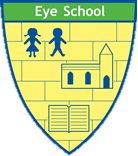Music
Our school's Christian vision of children living life "in all its fullness" (John 10:10) encompasses a holistic approach to education, emphasising not only academic excellence but also personal growth, emotional well-being, and spiritual development. Music plays a pivotal role in realising this vision by offering numerous opportunities for children to explore and develop their spirituality.
How Music Relates to our Vision
Expression of Joy and Abundance:
Music is a universal language that expresses joy, celebration, and the fullness of life. Through singing, playing instruments, and listening to music, children experience the richness and beauty of creation, aligning with the vision of living life in its fullness.
Emotional and Spiritual Connection:
Music has a profound ability to connect with our emotions and spirit. It provides a medium for children to explore their feelings, express themselves, and connect with something greater than themselves, fostering a sense of spirituality and inner peace.
Community and Belonging:
Participating in music, whether in choirs, ensembles, in Forest School or music classes, builds a sense of community and belonging. This communal aspect of music helps children feel connected to others, nurturing a sense of unity and shared purpose, which is central to the vision of a full life.
Opportunities for Developing Spirituality through Music
Worship and Reflection:
Incorporating music into worship and reflective practices can deepen children's spiritual experiences. Hymns, spiritual songs, and reflective music during collective worship or classroom activities provide moments for children to connect with their faith and reflect on their values and beliefs.
Cultural and Religious Understanding:
Exposing children to music from various cultures and religious traditions broadens their understanding and appreciation of the world's diversity. This exposure helps them recognise and respect different expressions of spirituality, promoting inclusiveness and empathy.
Creative Expression and Self-Discovery:
Music encourages creative expression and self-discovery. Composing, improvising, and experimenting with music allows children to explore their inner selves, articulate their thoughts and emotions, and discover their unique talents and interests.
Mindfulness and Well-Being:
Music can be a tool for mindfulness and relaxation. Activities like guided listening, meditation with music, and creating calming soundscapes help children develop mindfulness, reduce stress, and enhance their emotional and spiritual well-being.
Inspirational Themes and Messages:
Songs with inspirational and uplifting messages can motivate and inspire children. Lyrics that focus on themes of hope, love, and perseverance resonate with children's spirits and encourage them to live out these values in their daily lives.
By integrating music into various aspects of the school curriculum and culture, we provide children with a powerful means to experience and live out the vision of life in all its fullness. Music becomes a conduit for emotional expression, spiritual growth, and communal harmony, enriching the overall educational experience and fostering a well-rounded, fulfilling life.
